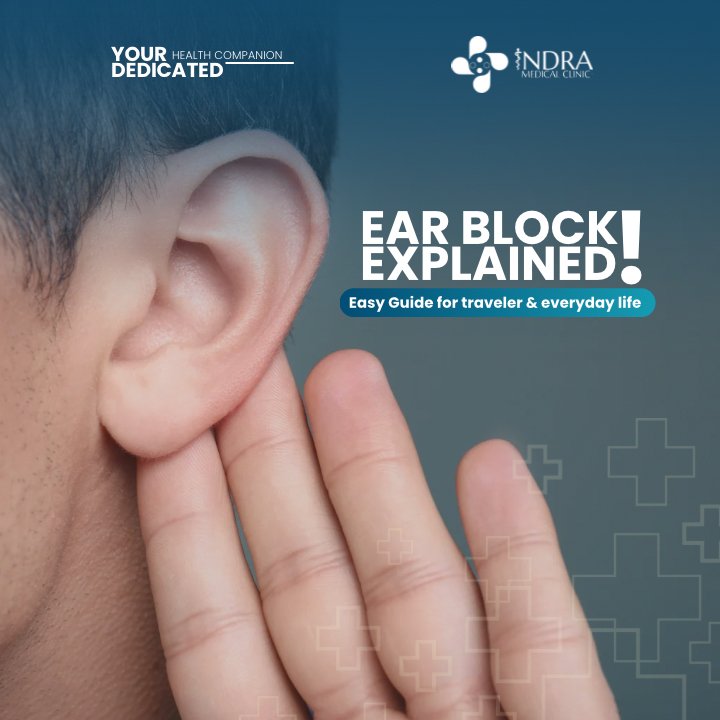Ever felt your ears suddenly go “blocked” during a flight, a dive, or even when you catch a cold? That uncomfortable sensation is called an ear block. It’s common, usually harmless, but can be annoying—especially when you’re traveling.
What Is Ear Block?
Ear block happens when the Eustachian tube (a small passage connecting your middle ear to your throat) gets clogged. This tube helps balance air pressure, but when it doesn’t open properly, your ear feels full, muffled, or “plugged.”
Common Causes
- Airplane travel – pressure changes during takeoff/landing
- Scuba diving – sudden pressure shifts underwater
- Colds & allergies – swelling and mucus block the tube
- Earwax buildup – prevents sound and air from moving normally
Symptoms to Notice
- Feeling of fullness in the ear
- Muffled or reduced hearing
- Mild ear pain or pressure
- Popping, crackling, or ringing sounds
Simple Fixes You Can Try
- Yawning, swallowing, or chewing gum – opens the tube naturally
- Valsalva maneuver – pinch nose, close mouth, gently blow
- Stay hydrated – thins mucus and keeps tubes clear
- Use decongestants (when needed) – helpful during flights if you have a cold
⚠️ Seek medical help if ear block lasts more than a few days, causes severe pain, or comes with fever or hearing loss.
Key Points for Travelers
- Planes & diving = most common triggers
- Don’t fly or dive if you have a bad cold or sinus infection
- Always equalize pressure early (before discomfort builds up)
- Carry gum or candy to help during flights
✈️ Whether you’re flying, diving, or just battling a stuffy nose.



